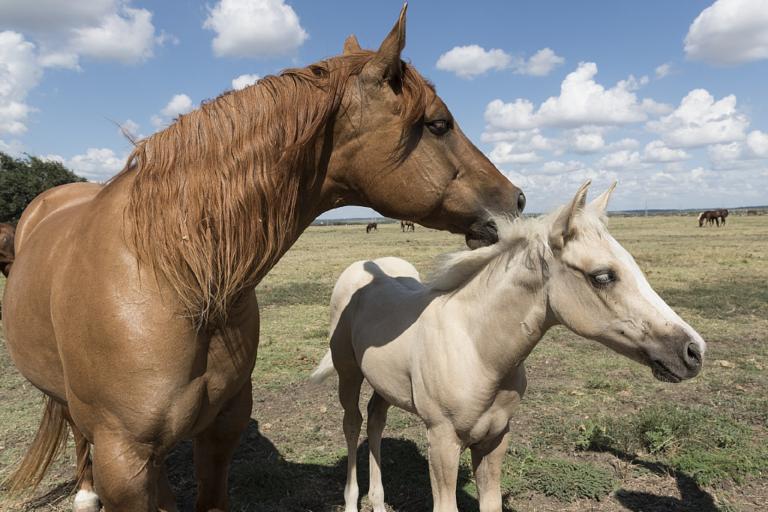Glycogen Storage Disease IV (GSD IV Horse)
Glycogen Storage Disease IV (GSD IV) causes energy deficiency in muscles and organs due to a disorder in glycogen metabolism. The disease occurs in the Quarter Horse and related breeds.
Synonym: Glycogen Branching Enzyme Deficiency (GBED)
Symptoms
- Weakness
- Low body temperature
- Accelerated breathing
- Tremors
- Spontaneous abortions
General Information
- In glycogen branching enzyme deficiency (GBED), glucose cannot be stored in the form of glycogen.
- This leads to a lack of energy for muscles and organs.
- Foals may die shortly after birth (within the first 8 weeks) due to organ failure (liver or heart).
Test Information
This test detects a single basepair change in exon 1 of the GBE1 gene.
Genotype and Lab Report
Inheritance: autosomal recessive
→ Only horses with two copies of the variant (gbed/gbed) are affected. Horses with only one copy (N/gbed) are clinically healthy carriers.
Genotype
N/N = normal
The horse has no copies of the genetic variant causitive for GBED/GSD IV and therefore cannot pass it on to its offspring.
N/gbed= a carrier
The horse is clinically healthy. It has one copy of the genetic variant causitive for GBED/GSD IV, which will be passed on to its offspring with a probability of 50%.
gbed/gbed= affected
The horse is affected and will not live long enough to reproduce.
Recommendations
- Carriers may be bred to normal animals (N/gbed x N/N) without any risk of producing affected offspring. The offspring should also be tested before breeding to determine if they are carriers or normal.
- Breeding two carriers (N/gbed x N/gbed) is not recommended due to the possibility of 25% of the offspring being affected.
Literature
Ward, TL., Valberg, SJ., Adelson, DL., Abbey, CA., Binns, MM., Mickelson, JR.: Glycogen branching enzyme (GBE1) mutation causing equine glycogen storage disease IV. Mamm Genome 15:570-7, 2004. Pubmed reference: 15366377.
Further information is available at Online Mendelian Inheritance in Animals.

